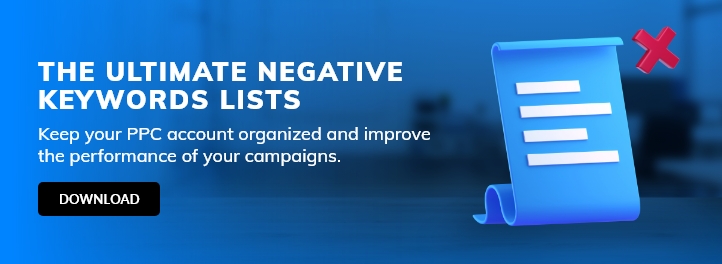[display-name-category]
[post_author]
As mentioned in the first post of this two part series, Google has limited data from the Google Ads Search Terms Report. The change made mining for negative keywords a lot less effective in PPC management with a drop in visibility of approximately 50% of all search terms that matched our keywords. This is frustrating because the search queries left out of the report are often more likely to contain negative keyword opportunities.
Keep reading to review the second set of lists to use to improve traffic quality and reduce your cost per lead despite these changes.
Competitors
Similar to common names, competitors will show up in your search terms for the same reasons. Create a list to block them. Roofing companies and other home service accounts will see this very frequently. Someone searching for “abc roofing company” triggers the “roofing company” phrase or broad keywords in your own name.
When building a competitor list, research is important to exclude those you know and those you are not aware of. Consider researching in local directories, checking on Yelp, and perhaps in Google’s Local Service Ads. Additionally, conducting Google and Bing searches will help identify the top search results.
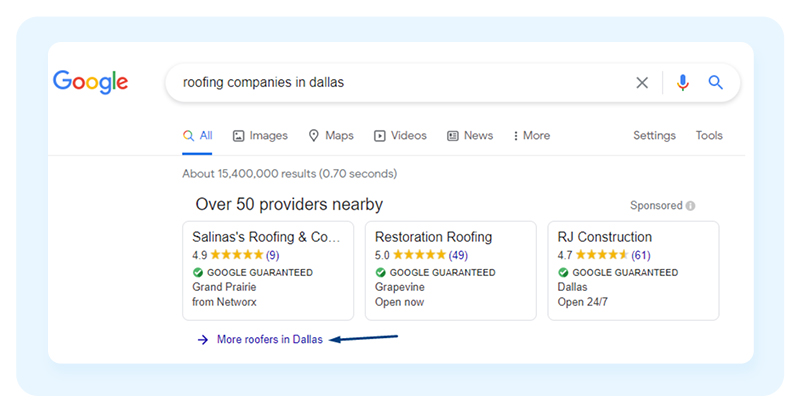
When adding competitors, add one to two-word negative keywords. For example, to exclude a competitor named Elite Roofing Brothers Inc., add the words “elite” and “brothers” as the negative keywords. No need to add the entire name of the company “Elite Roofing Brothers Inc.” as a negative keyword. It’s doubtful that someone will actually type the full name into a search engine. More than likely, someone will type “roofing brothers phone number” or “elite roofing company” and not the business’s full name. Keep it simple and block “elite” and “brothers” separately, as these are words that no one will ever use to search for your own roofing company.
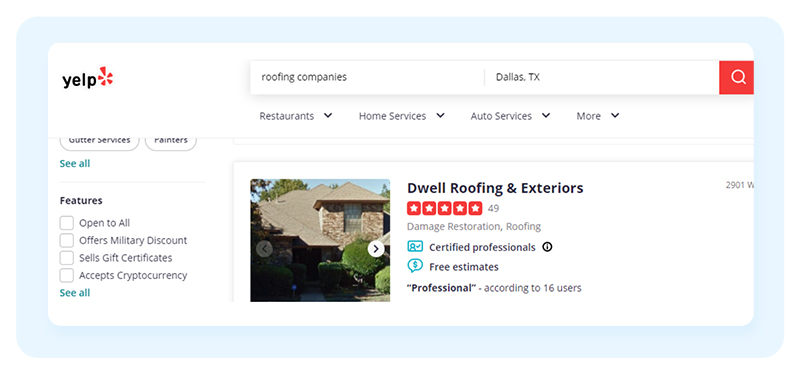
Side note: The longer your negative keyword, the less likely it is to block irrelevant terms. Focus on the single word in names that can filter out a competitor.
Industry-Specific
From competitors, we jump into the next natural progression in your PPC management which is the Industry-Specific negative keyword list. This is another list that you will need to spend some time building and researching on your own. This list contains all those negative keywords that are related to your industry, but irrelevant to your business.
As an example, we will be a doctor that specializes in skin tightening surgery. The industry-specific list should include common words that people might search for alongside “skin tightening”. Off the top of my head, I know I can add negatives such as “cream”, “remedies”, “risks” and “botches”.
Going more specific, if we only perform skin tightening on the face, then we need to exclude other body parts like “arms”, “legs”, “stomach” and “belly” to avoid searches such as “skin tightening in arms” or “belly skin tightening”.
To further build this list, there are several free and paid negative keyword tools out there you could try, such as the Google Ads Keyword Planner, or Negative Keyword Pro. That being said, I recommend a pretty simple exercise which is to just search on Google. Type in your most broad keyword into the search bar and then use Google’s auto-complete function to get ideas. Keeping the same example, this is what we see when we search for “skin tightening”:
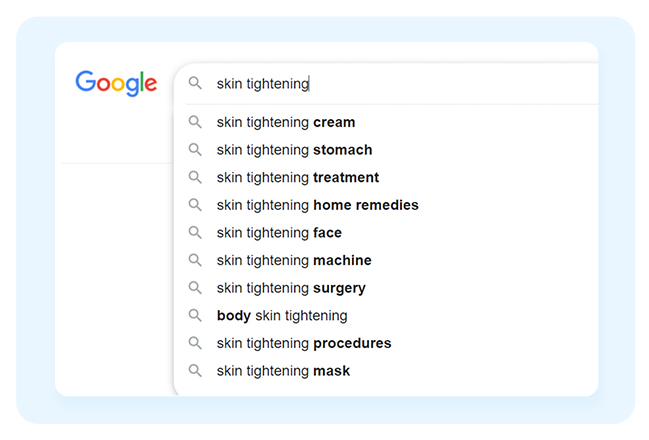
This exercise can help reveal negative keyword ideas to the ones I already had considered “machine” and “mask”.
Take this to the next level and get even more specific by typing a keyword and adding one letter to let the auto-complete feature give you display terms to reference as ideas. Here, we added the letter “a“:
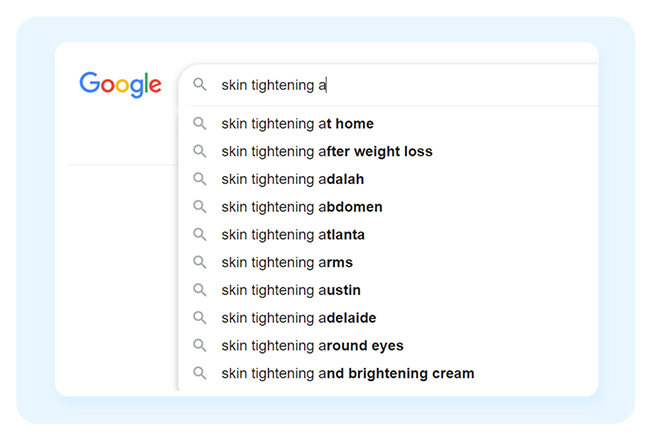
The letter ‘a’ gives more ideas such as “at home,” “abdomen,” and more. By the time you get through the alphabet, you’ll have a pretty robust industry-specific list. The exercise is time-consuming but definitely worth it for the health of your campaigns and budget in your PPC management strategy.
Note: These practices will also reveal locations or names to add to those respective lists.
Search Terms
The last of the six lists we recommend is one that includes other search queries you may find when reviewing the search terms report.
This report does not provide as much visibility and data as it used to, but you’ll still find search queries worth excluding. Keep a uniqe list for search terms instead of adding them to the universal list.
Conclusion
These 6 negative keyword lists will help keep your PPC account organized and improve the performance of your campaigns.
As promised earlier, you can find our Universal Negative Keyword list below. This includes our universal list, negative locations, common names, and years.
Many of our clients ask, “When should I add negative keywords to the campaign or ad group level?”
Whenever you need to exclude something specific only to that ad group or that campaign, for instance, if you are a dental office and have a campaign for emergency dentistry and another for braces, then you can add the negative keyword “emergency” to the braces campaign and the word “braces” to the emergency campaign, at the campaign level. The same logic applies to the ad group level.
We hope this list and tips contribute to your bottom line and frees up some time while managing your negative keywords and improving your PPC management strategy.


